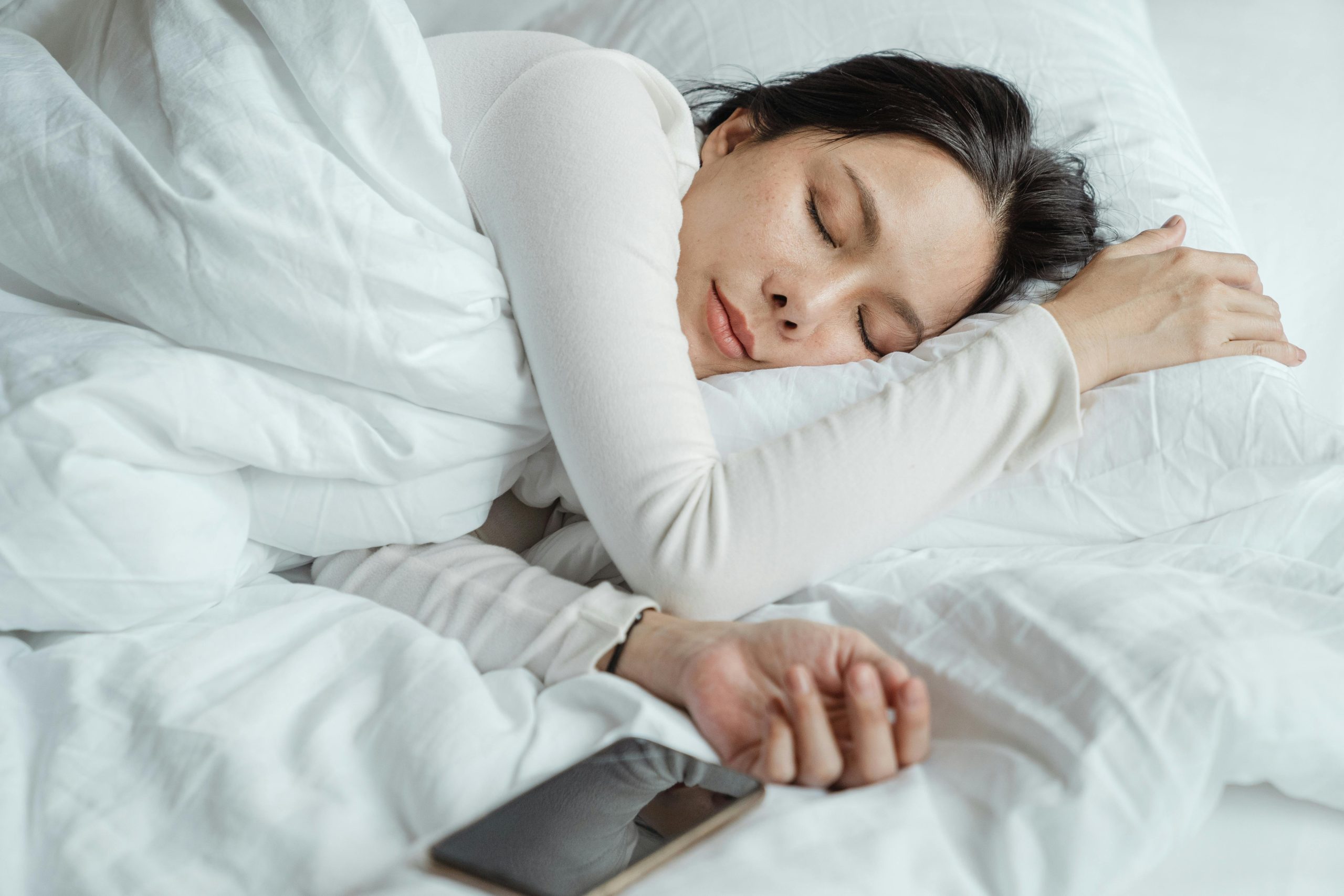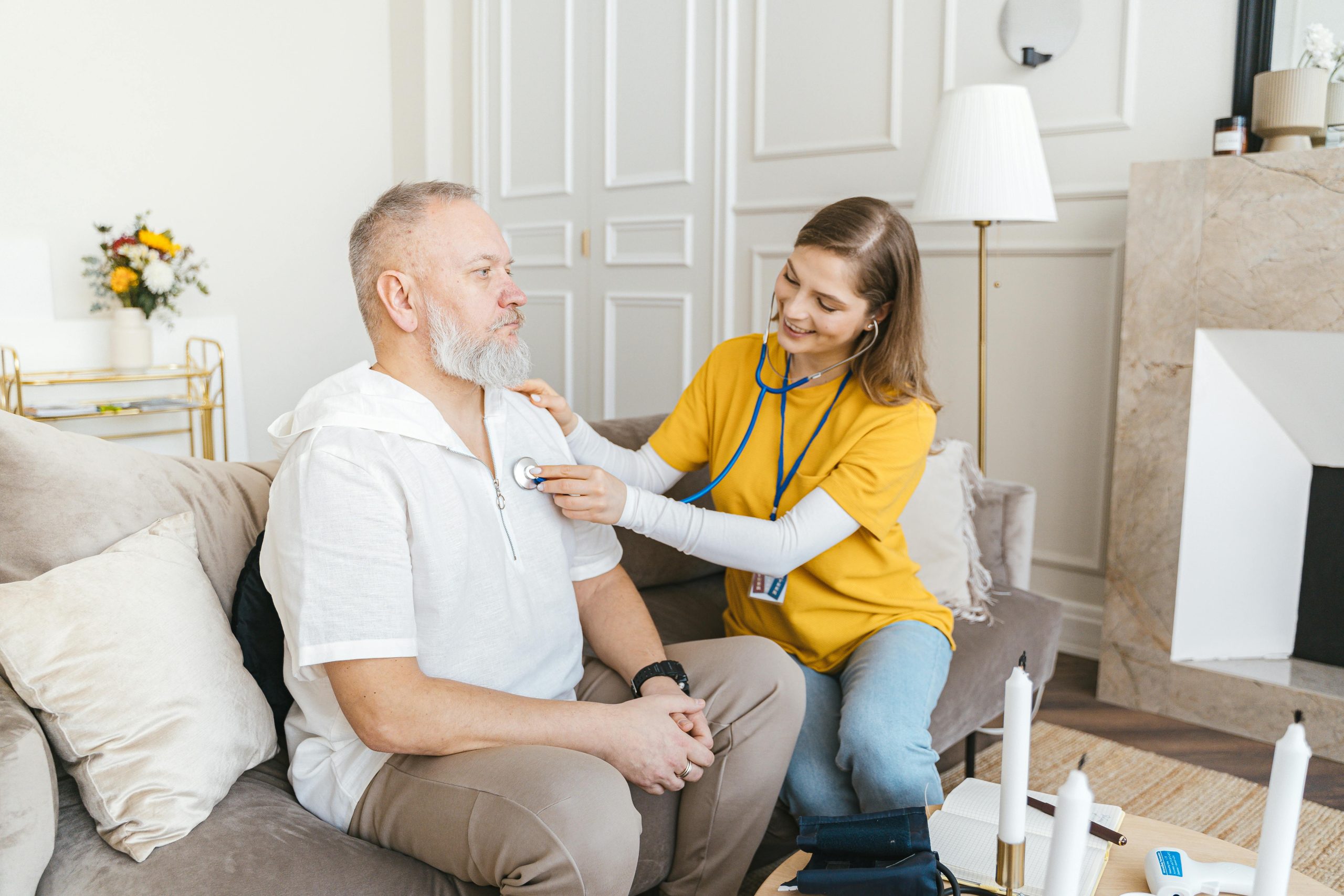This article was published on Fri 16 Aug 2024. At the time of publishing, this article was true and accurate, however, over time this may have changed. Some links may no longer work. If you have any concerns about this please contact us
We spend about a third of our lives asleep. Sleep is essential, it is as important to our bodies as eating, drinking, and breathing, and is vital for maintaining good mental and physical health. Sleeping helps us to recover from mental as well as physical exertion.
When you’re well rested, you think more clearly, feel better, and have more stamina and energy. But many people don’t get the 7-9 hours of sleep that doctors recommend. Lack of sleep, even for a few days, can leave you feeling irritable, frustrated, and forgetful. Regular poor sleep can put you at risk of serious medical conditions, including obesity, heart disease and diabetes and it may shorten your life expectancy.
According to many surveys, around one third of the population suffer with sleep problems. Lack of sleep can affect mood, energy and concentration levels, relationships, and the ability to stay awake and function at work during the day. A solid night’s sleep is essential for a long and healthy life. A variety of factors can cause poor sleep, including health conditions such as sleep apnoea. But in most cases, it’s due to bad sleeping habits.
Common mental health problems like anxiety and depression can often underpin sleep problems.
We can all benefit from improving the quality of our sleep. For many of us, it may simply be a case of making small lifestyle adjustments in order to help us sleep better.
Tips for Getting a Good Night’s Sleep
- Go to bed and get up at the same time every day. Even at the weekend, a predictable schedule sets your body’s internal clock to expect to sleep at a certain time each night. If you feel you haven’t slept well, resist the urge to sleep in longer than normal, getting up on schedule keeps your body in its normal wake-up routine.
- Create a bedtime routine. Ease the transition to sleep by engaging in relaxing activities beginning an hour or so before bedtime. You could have a bath, do some light reading or listen to soothing music.
- Make your bedroom a comfortable environment for sleeping. It should be cool, dark, and quiet.
- Deal with stressful tasks earlier in the day or evening. It may be harder to relax and go to sleep if you engage in demanding tasks, like paying bills or dealing with a difficult parenting issue, just before bedtime.
- Write down your thoughts and worries and things you need to do the next day. This will help clear your mind and reduce worry.
- Get regular exercise. Daily exercise can help you get to sleep faster and to sleep better. Just be careful not to do it close to bedtime as exercise produces stimulants that stop the brain from relaxing quickly.
- Limit caffeine, alcohol, nicotine, and other substances that may keep you awake. Stay away from these when it’s close to bedtime and limit any consumption of caffeine to 6 to 8 hours before you want to fall asleep. Caffeine and nicotine are stimulants that make it harder to sleep and alcohol interferes with sleep quality.
- Watch what and when you eat at night. Finish your evening meal several hours before you go to bed and avoid food that you know upset your stomach and could keep you awake.
- Don’t watch the clock. Keeping an eye on the clock when you want to fall asleep (or when you wake up in the middle of the night) can increase stress and make it harder to sleep. Turn your alarm clock’s face away from the bed. If you use a phone alarm, set your phone face down.
- Limit electronics at bedtime. Be careful about television, radio, and computer activities just before bed, as they may be overly stimulating, particularly due to the blue light that electronic devices emit. Don’t bring your tablet, phone, or other electronics to bed.
- If you can’t get to sleep within 20 minutes of going to bed or if you wake up in the middle of the night and can’t get back to sleep. Get up and do something relaxing until you feel sleepy again. Try reading or listening to soothing music. Or use mindfulness meditation techniques. Just remember to keep the lights dim so that you don’t signal your body that it’s time to wake up.
If you’re experiencing sleep problems, you may want to talk to your GP. Many sleep problems are temporary and go away on their own, but some may be related to depression, anxiety, or chronic pain, all of which can be treated with professional help. If you have sleep problems that last longer than a week, see your GP.
Sleep and working shifts
Shift workers often face challenges in relation to their sleeping patterns and eating habits.
Shift work is harmful to sleep. Our body’s internal clock is designed for us to be active in the day and asleep at night. This is known as the Circadian Rhythm, which controls our sleep, body temperature, digestion, heart rate and blood pressure to keep our bodies synchronised through the day-night cycle. Working shifts can work against the body’s natural programming, particularly in relation to sleeping and eating.
For night shift workers daytime sleep can be 1.5 -2 hours shorter than sleep at night. Daytime sleep is less efficient that night-time sleep as you’re constantly battling against disturbing factors, such as light and outside noise. With around 4 million people working night shifts, it’s important that those who do understand the importance of sleep and do what they can to achieve better daytime sleep.
Lack of quality sleep can lead to all sorts of issues in the workplace including poor concentration, absenteeism, accidents, and errors.
Things you can do to help when working a night shift
When you are at work
- If it’s possible, take a 20-30 mins nap during a work break.
- Only use moderate amounts of caffeine in the early part of your shift.
- Get some exercise and only eat light, healthy meals and snacks during your shift.
- Keep the work environment brightly lit.
During your commute home
- Wear sunglasses or amber tinted glasses to block out the sunlight when outside.
- To reduce the potential for driving when sleepy, get a lift, use public transport, or take a taxi.
- Avoid caffeine.
When you get home
- Prioritise your sleep, avoid running errands or doing chores after your shift.
- Don’t use alcohol as a sleep aid.
- Turn off your mobile before going to bed.
- Alter your bedtime a few days in advance of a change in your work shift.
At bedtime
- Keep your bedroom cool and dark.
- Use earplugs or a white noise machine.
- Wear an eye mask or use blackout curtains or blinds.
Other tips
- Use powernaps as these are a great way to top up the energy levels, 10 to 20 minutes is enough to do this.
- Help prepare the body for shift work with extra sleep, so the day you start try and get an extra two-hour sleep.
- When finishing a shift pattern, wake up two hours early to help assist the body get back into a day/night sleeping routine.
For more information:
British Snoring & Sleep Apnoea Association
Want to learn more? Access our wellbeing hub here.










